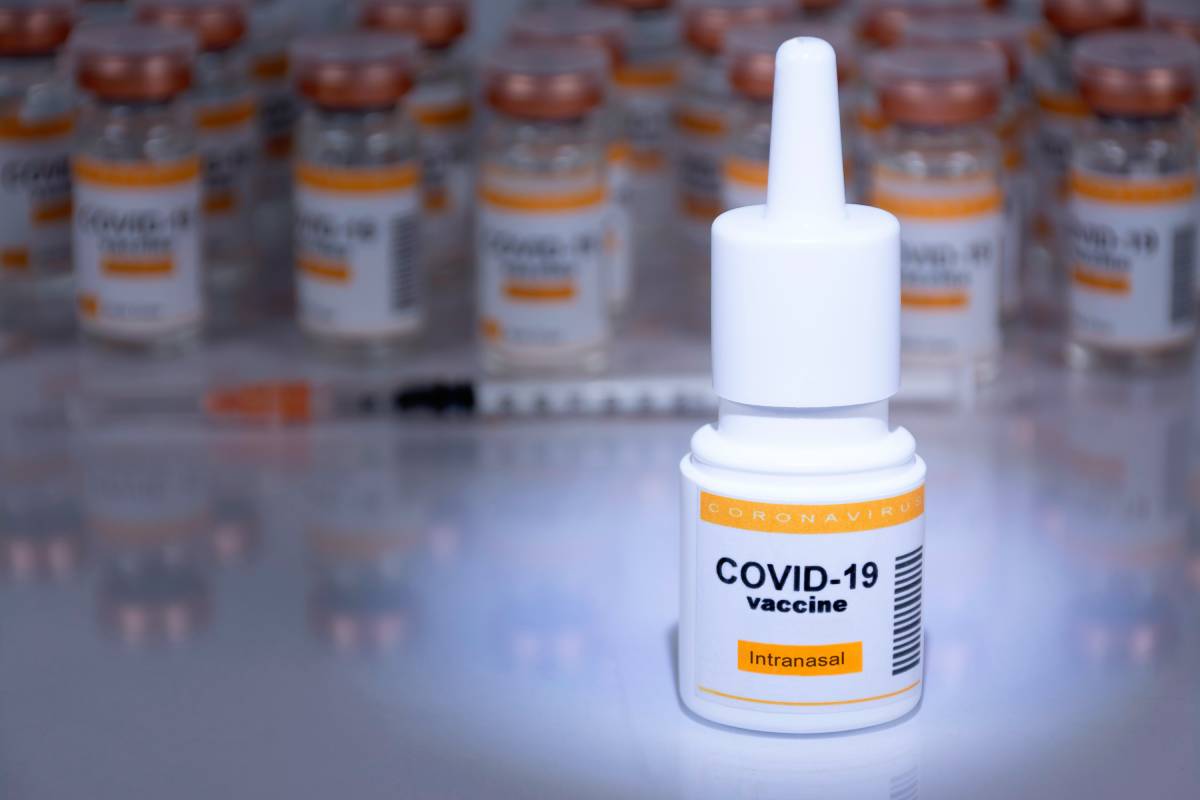Inhaled Covid Vaccine
March 22, 2022
Since 2019, the severe acute respiratory syndrome coronavirus 2 (SARS-CoV-2) has infected over 400 million people and killed over 6 million 1. Global COVID-19 vaccination programs have played a critical role in reducing viral transmission and overall deaths. However, emerging variants of concerns – of which there have been 5 since September 2020 2 – have been threatening the effectiveness of current COVID-19 vaccines, which are administered intramuscularly and designed to target only the spike protein of SARS-CoV-2. Next-generation vaccine strategies, which may include an inhaled COVID-19 vaccine, are thus urgently required to ensure broader and long-lasting protection.
Studies from McMaster University in Canada, based off research to develop a tuberculosis vaccine, found than an inhaled COVID-19 vaccine – targeting the lungs and upper airways, where COVID-19 particles first enter the body – might induce broad protective respiratory mucosal immunity in a way the injected vaccine does not. Recently published research assessed the effectiveness of trivalent inhaled COVID-19 vaccines in mouse models.
The inhaled vaccine, built off an adenovirus vector 3, is designed to target three parts of the virus – spike-1, nucleocapsid, and RdRp antigens, two of which are highly conserved across coronaviruses and mutate less rapidly than the virus’ spike protein. This is particularly important since current vaccines to date, including those produced by Pfizer-BioNTech, Moderna, and Johnson & Johnson, only target the spike protein.
The researchers specifically assessed tripartite protective immunity in response to the inhaled vaccine, including local and systemic antibody response dynamics, the responses of mucosal memory T cells, and mucosal trained innate immunity, a unique form of immunity able to protect against a broad spectrum of lung pathogens in addition to COVID-19. Data revealed that a single-dose intranasal immunization of a chimpanzee adenovirus-vectored vaccine produced better tripartite protective immunity than an intramuscular immunization with the same vaccine formulation. As such, the researchers also confirmed that optimal immune protection requires B and T cell immunity, as well as trained innate immunity. Furthermore, data also demonstrated that the inhaled vaccine protected against both the original SARS-CoV-2 virus form and two key variants of concern (B.1.1.7 and B.1.351).
This research has provided the preliminary data for a phase 1 clinical trial (clinicaltrials.gov: NCT05094609) which is currently assessing the inhaled COVID-19 vaccine as a booster in healthy adults having already received two doses of an mRNA vaccine.
However, these initial results remain limited for a number of reasons. First, mouse lungs assessed in research studies differ from human lungs in that the latter may have received circulating antibodies generated from previous intramuscular COVID-19 immunizations. Second, human immune responses are likely to differ from those observed in their mouse models, including as regards the relative responses of various cellular players (CD8+ vs CD4+ T cells, for example).
Overall, research has emerged demonstrating that an adenovirus-vectored multivalent inhaled vaccine may represent an effective next-generation COVID-19 vaccine strategy to swiftly induce all-around mucosal immunity against current and future variants of concern.
References
1. WHO Coronavirus (COVID-19) Dashboard | WHO Coronavirus (COVID-19) Dashboard With Vaccination Data. Available at: https://covid19.who.int/.
2. Gupta, R. K. Will SARS-CoV-2 variants of concern affect the promise of vaccines? Nature Reviews Immunology (2021). doi:10.1038/s41577-021-00556-5
3. Afkhami, S. et al. Respiratory mucosal delivery of next-generation COVID-19 vaccine provides robust protection against both ancestral and variant strains of SARS-CoV-2. Cell 185, 896–915.e19 (2022). doi:10.1016/j.cell.2022.02.005